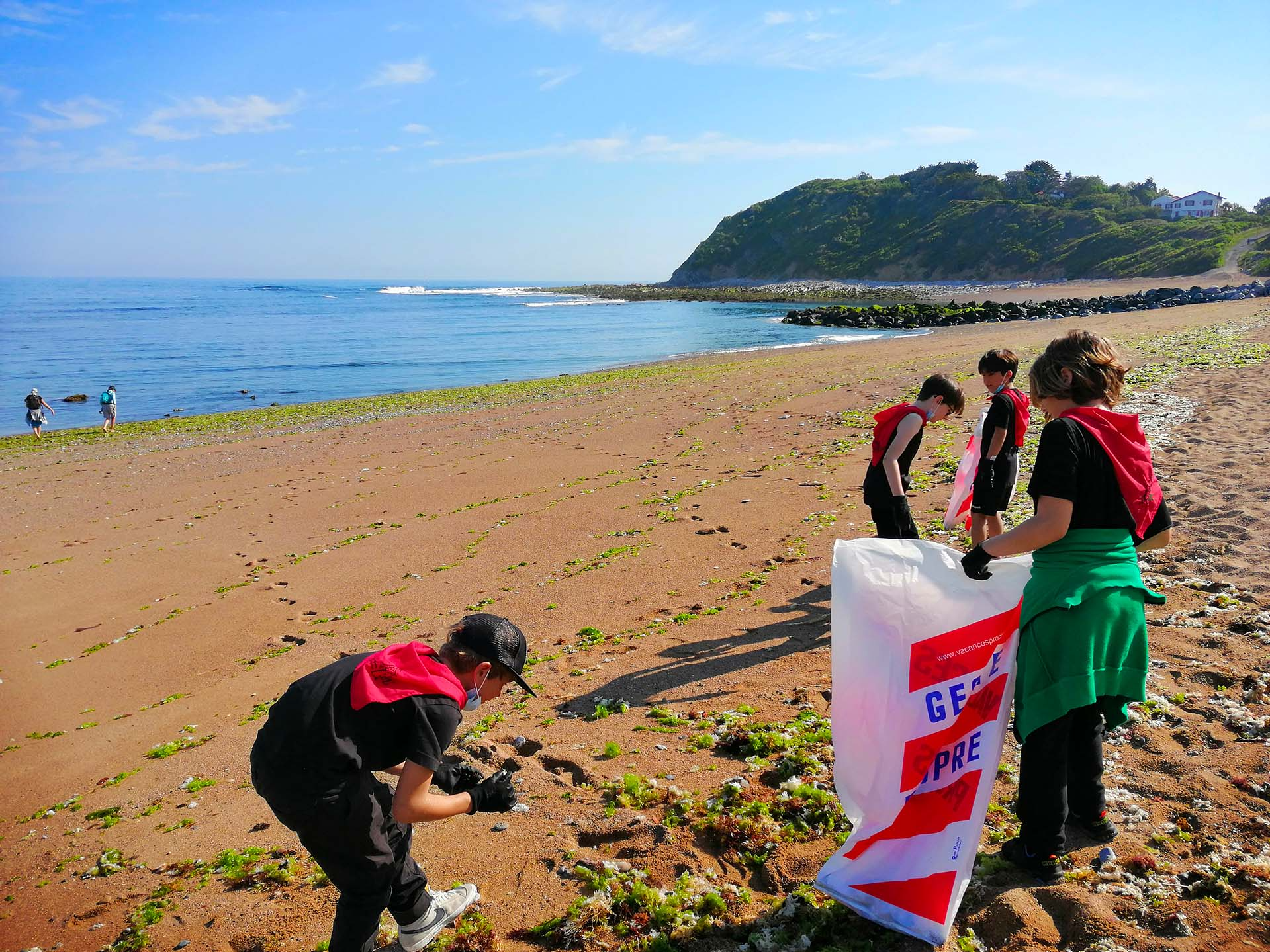Did you know that you also have a role to play in protecting the Ocean, even though you are not a scientist or a politican ? Over the last thirty years, Surfrider Foundation Europe has been committed to make science available for as many people as possible. Everyone has some responsibility in the fight against marine pollution. During a beach clean-up, a kayak trip or a class excursion with school kids, it is possible to collect scientific data on marine litter, in order to eventually implement long term solutions. So keep reading this article, if you would like to concretely act for the health of our blue planet.
Citizen science at the heart of Surfrider Foundation Europe’s mission
Every year, eight million tons of waste end up in the Ocean, thus threatening marine ecosystems and contributing to global warming. Ever since its creation back in the year 1990, Surfrider Foundation Europe has been providing its expertise to act at the very root of marine litter issues. How? By getting European citizens involved through community science projects against ocean-related pollution. Anyone can get involved, simply by collecting data on the field. Surfrider Foundation Europe’s citizen science programs have several objectives. Apart from increasing scientific knowledge about marine litter, collecting data is a useful way to communicate, raise awareness and educate people about pollution. Furthermore, it is also used by Surfrider Foundation Europe’s expert team to pressure decision makers and industries, in order to stop plastic waste at its source.
What about our younger public?
Enabling children to become actors on today’s environmental issues is key to encourage future citizens to positively act on our Ocean tomorrow. Surfrider Foundation Europe therefore believes that it is necessary to get the youth fully involved in marine litter issues. Launched in 2016 within the Educative Marine Areas (Aires Marines Educatives), the OSPARITO citizen science program enables pupils from primary schools to gather scientific data while collecting waste on the beach
Through a fun police investigation scenario, OSPARITO displays an educational and ecocitizen approach to act against marine pollution. Concretely, how does the program work? Firstly, the young participants collect trash on the beach. The foundings are then sorted, quantified and analyzed following the OSPARITO scientific protocol. Then, the children take part to an open dialogue on the solution to reduce marine litter, based on their on-field experience. The action of these pupils helps expanding the available data and scientific knowledge related to the evolution of macrowaste on our coastline. Chief project of citizen science at Surfrider Foundation Europe, Clément explains: “Being an actor for legislative change and scientific knowledge is not restricted to a small number of adults. Everyone has the power to act, no matter the age, as proven by the OSPARITO program”.
If you are a teacher or if you are simply curious about the OSPARITO program, please visit the dedicated website.

